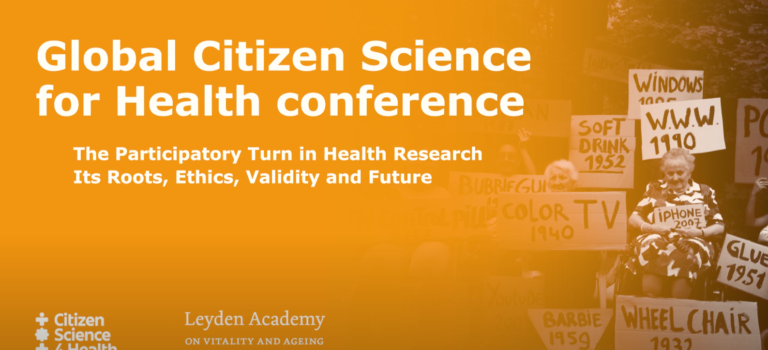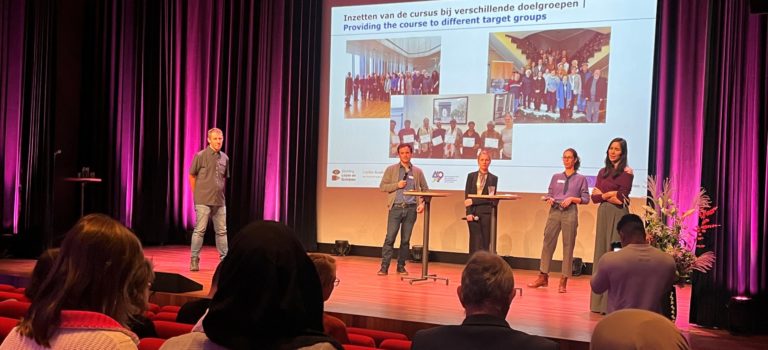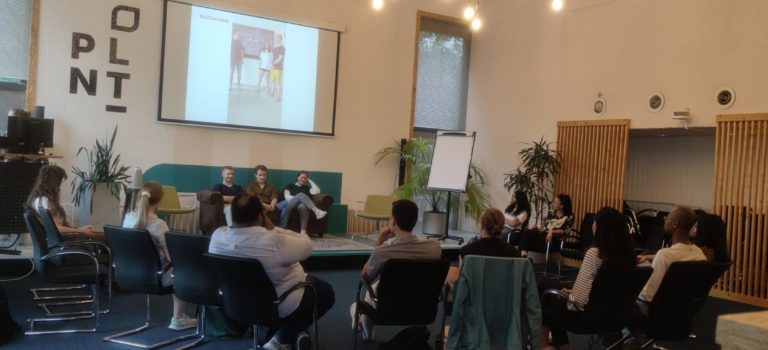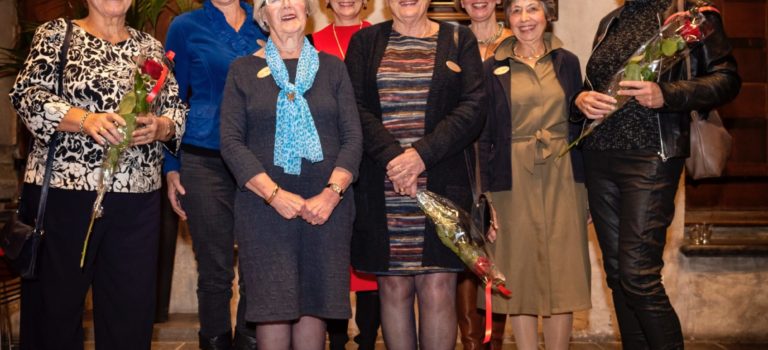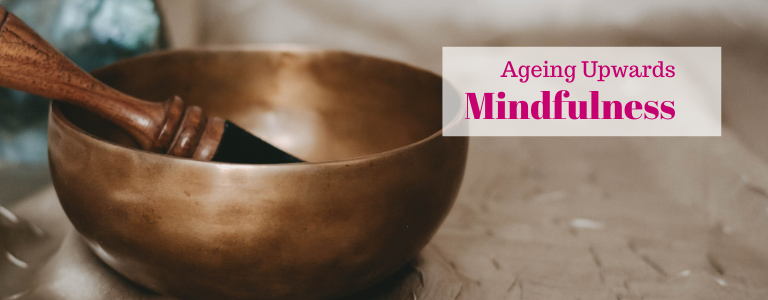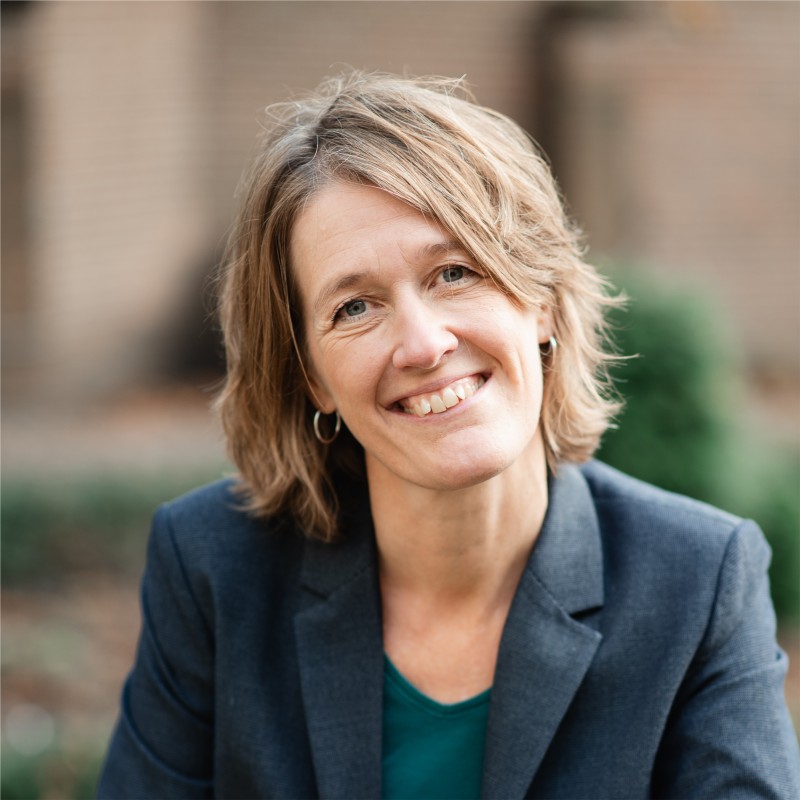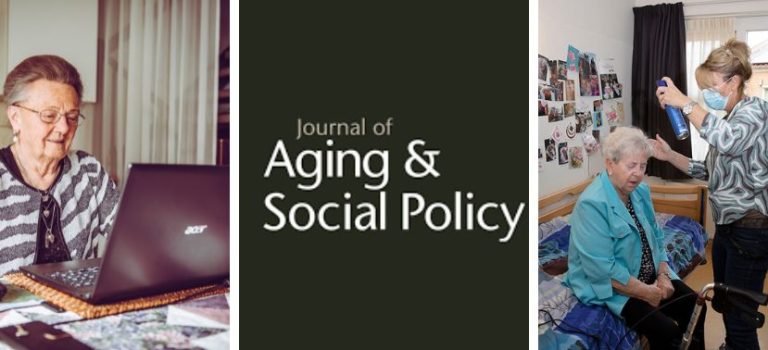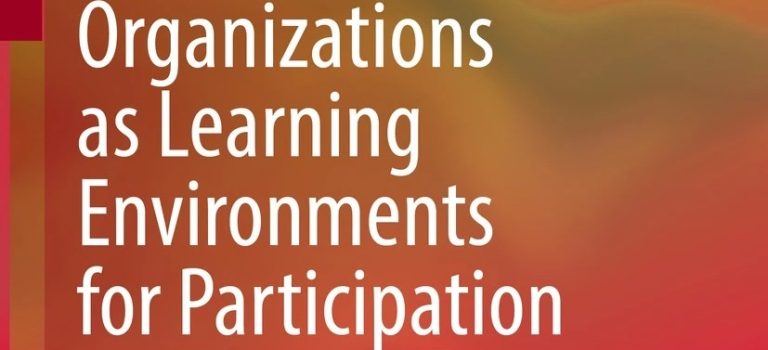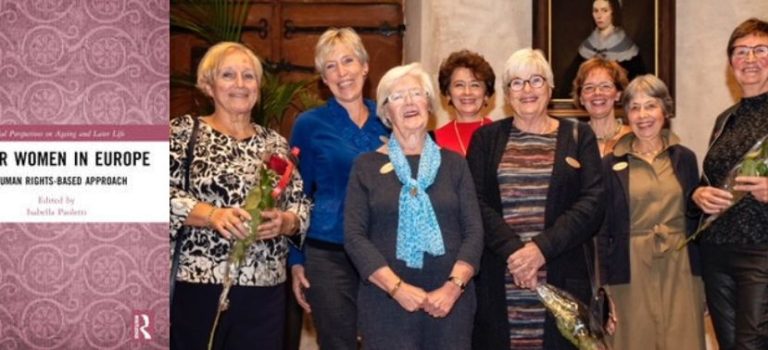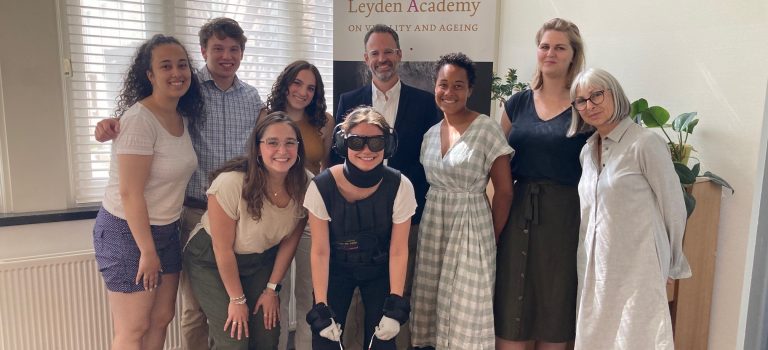This is the message that Tineke Abma would like to convey. On Friday, June 23, she delivered her inaugural lecture ‘The Art of Belonging’ following her appointment as professor of Elderly Participation at the University of Leiden. This is a brief summary of her inaugural speech.
The elderly are a gift to society
Participation, or taking part, is of great importance to elderly people. People such as Afifa Tadmine (73), whose face represents Leyden Academy. With her BLOEM Foundation, Afifa is –and has been for years-very committed to the activation of women who live in social isolation. Or take Leo and Netty Olffers, who have opened their living room to elderly people in the Laak district of The Hague for years. These are no exceptions. Older people are busier than ever: babysitting their grandchildren, working as volunteers, whilst often still working in paid jobs themselves. Participating is meaningful. It contributes to the well-being of the elderly and is at the same time a great ‘gift’ for society.
The art of belonging: being and desire
According to older people participation is useful if it contributes to belonging. ‘Belonging’ sounds like a combination of two verbs: being and longing, or ‘being’ and ‘desire’. Belonging refers to a deep human desire to belong without having to conform. Being accepted is not self-evident. As soon as people reach retirement age, they are confronted with processes of social exclusion. They do not experience belonging (anymore). This is even more true for older people who have had to deal with exclusion based on class, ethnicity or another sexual identity all their lives. Opportunities for participation are unevenly distributed in our society.
Dominance of economic thinking
Current policy for elderly focuses mainly on healthcare costs for an aging population and the perceived limited economic usefulness of elderly people. The elderly are presented as a cost item and vital elderly people are expected to contribute to the economy and healthcare crisis by providing informal care, on top of all the tasks they already perform. But what do they want? This and other forms and combinations of meaningful participation remain underexposed, such as participating in socio-cultural activities that offer older people opportunities for continued growth and development. The need to learn does not stop after the age of 65. This is precisely what I wish to do with my chair
Art touches and connects beyond words
It is high time to give a new meaning to the concept of participation so that it contributes to meaning and belonging. This can only be done if we are prepared to accept that we humans are always connected with, and therefore dependent on, the world around us. Participating artists and social designers have a lot to offer. They are not so much focused on the defect or clinical picture, but take into consideration the (older) person and their creative potential. It is important for them to initiate a creative process, to express feelings, and they do this with care and concern, with concern for well-being of elderly people. What makes theatre, dance or singing together have so much to offer? In short: Art is not so much about transferring information or meaning, but primarily about sensual and sensory sensation. The experience is intensified and people are temporarily pulled out of their everyday life. Something resonates in people, which is aroused by the movements and the music, and that ‘feeling sound’ creates inspiration. This is why art touches and connects beyond words.
Transdisciplinary research with elderly people
I have always been an advocate for participatory research with people that contributes to their self-insight and mutual understanding. Drawing on different, sometimes conflicting perspectives, we can gain more insight into the experiences of others, and by entering into an equal dialogue we can broaden and enrich our own horizons. Involving patients or clients in research is becoming more and more common, but the participation of elderly people in research is much more limited, especially when it comes to elderly residents in nursing homes or elderly people with cognitive or verbal disabilities. We therefore have little or no knowledge of their perspective, and are thus confronted with our own methodological limitations. We invariably assume that people are autonomous and speaking subjects, and researchers often forget that there are people who cannot express themselves well in speech or whose words are not necessarily related to their emotions or actions. Excluding people from research is in fact silencing them. This is why I plead for transdisciplinary research together with older people and artists as co-researchers, and for the use of arts-based methods.
Moral horizon
Belonging forms the moral horizon for my research into elderly participation. That horizon outlines a movement and direction that my team and I are committed to in our research with, for and by older people. We want to contribute to 1) reducing inequalities of participation for older people and therefore their belonging, and 2) to promoting participation and belonging through a broader view of where participation takes place. Not only in informal care and work, but especially in areas that may have no direct economic benefit, but do generate vitality, meaning and connection, such as active participation in participatory art and culture.
Our research into the value of art
To gain more insight into the value of participatory art with and for the elderly, we conducted research into visual arts in hospitals, participatory theatre, inclusive dance, art for older migrants, clowning for people with dementia and intergenerational art in which children and elderly people work together, creating imaginary communities and visualizing what connects ‘us’ beyond age. We do not hesitate to ask critical-reflexive questions. Because art is no cure for everything and is not the solution or answer for the current healthcare crisis. But I do plead for an optimistic and hopeful vision of the third and fourth phase of life with room for participation in socio-cultural arrangements. The enormous creative potential this releases is enriching both for the elderly and our entire society.
A dance a day keeps the doctor away!
Professor Tineke A. Abma
Professor of Elderly Participation at the University of Leiden
Executive Director of Leyden Academy of Vitality and Ageing
